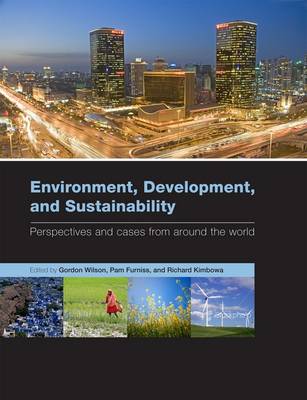By Kirsty McHugh, OUP UK
In the last of this week’s Countdown to Copenhagen blog posts, Gordon Wilson of the Open University writes about public action and climate change beyond the COP15 summit. He is Senior lecturer in Technology & Development, and has been writing and researching on development issues for many years. These include technological capabilities, professional expertise and practice, knowledge production through active social learning, and science and technology for development. He has also written extensively on sustainable development. He is one of the editors of Environment, Development, and Sustainability: Perspectives and cases from around the world.
Click here for the rest of the Countdown to Copenhagen blogs.
World leaders at COP15 may or may not put their pens to a deal where it is worth waiting for the ink to dry. But to place too much reliance on anything that raises hopes is more than creating a hostage to fortune. It amounts to abrogating our responsibilities as citizens through setting up straw people who fall down when they fail to deliver.
The history of public policy and action has shown that they are rarely the sole acts of benign, neutral government drawing the right conclusions from technical analyses. More likely they  represent a process of more-or-less ruly accommodations between many players and their different interests. Governments may be the most important of these players, but they are not the only ones. The history of public health initiatives in 19th century UK provides a useful lesson in this regard, the favourable social indicators of the Indian state of Kerala compared with the rest of India another. There is no reason to suppose that these lessons of how public needs come to be defined do not also apply to the international arena.
represent a process of more-or-less ruly accommodations between many players and their different interests. Governments may be the most important of these players, but they are not the only ones. The history of public health initiatives in 19th century UK provides a useful lesson in this regard, the favourable social indicators of the Indian state of Kerala compared with the rest of India another. There is no reason to suppose that these lessons of how public needs come to be defined do not also apply to the international arena.
With respect to climate change, we owe a great debt to the scientists who created a consensus under the umbrella of the United Nations Intergovernmental Panel on Climate Change and who have ensured that the issue is on national and international agendas. We should not forget, however, the potential role of informed citizens operating individually or collectively in defining public policies and actions. This role is more than ‘green’ behaviour in terms of, for example, doing our bit to reduce carbon footprints. It is also more than our right in many countries to elect and de-elect our governments, important as that is. (In any case, at an international scale, a world government that is democratically accountable is not even on the radar.) Nor does it necessarily concern our ability to mount 10, or even 100, demonstrations relating to Copenhagen. It does concern, however, our abilities to apply individual and collective pressure through a combination of working with, and where necessary confronting, governments and their international manifestations, and demonstrating alternatives.
I stress the qualifying adjective ‘informed’ which I don’t restrict to citizen understanding of the science of climate change and its likely impacts, nor of the social science of understanding socio-economic impacts. Such understandings are undoubtedly necessary to be ‘informed’ but they are not sufficient. Knowing the ‘facts’ is neither enough to change personal lifestyles nor to change po


